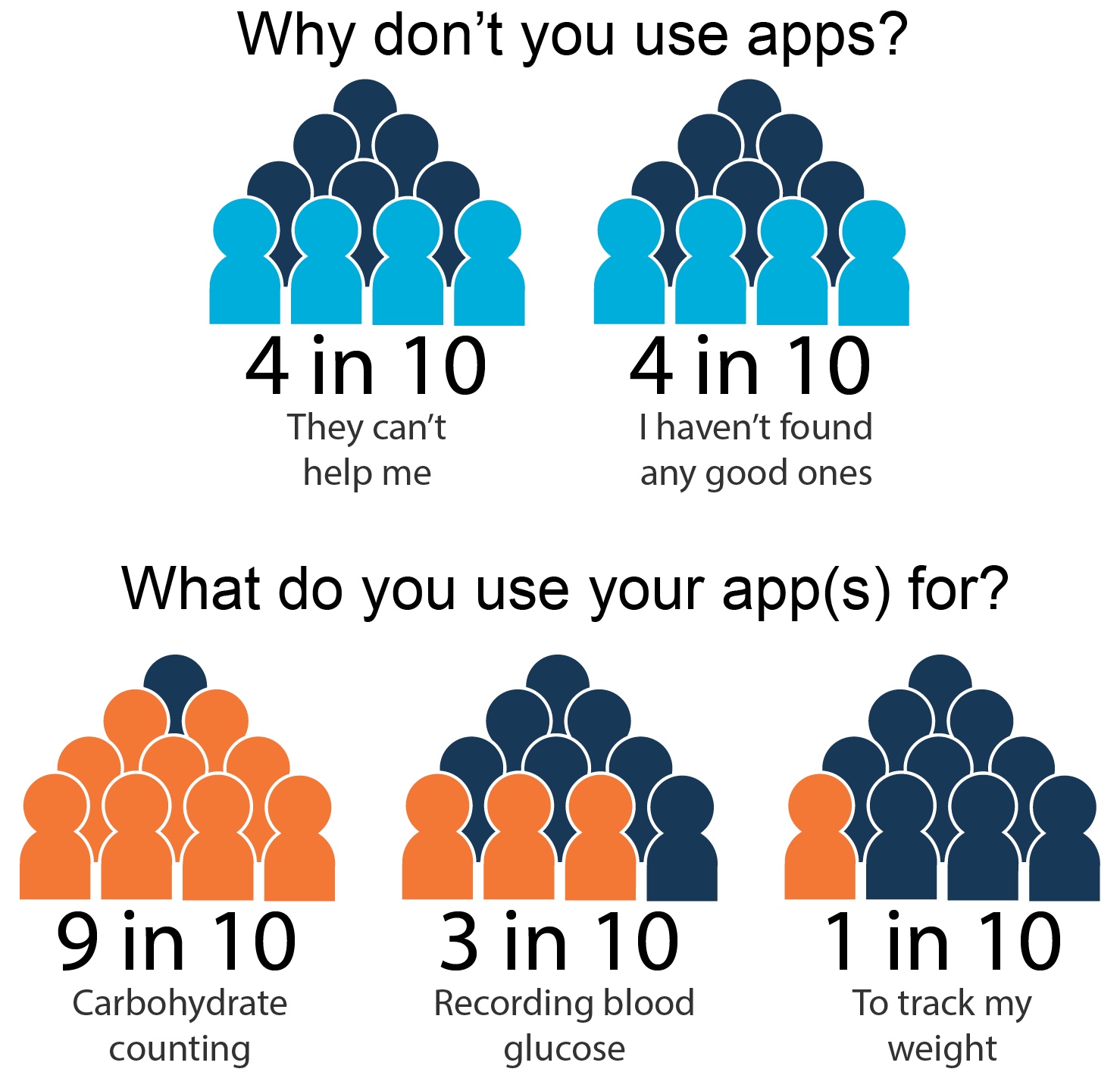Despite the high ownership of smartphones by Australian teens, and the large number of health-related and diabetes-specific apps currently available, only one in five youth with type 1 are using apps to help with managing their diabetes, according to a new Australian study.
Previous research has found benefits of apps for improving self-management in those with diabetes. Apps can support a range of self-management activities including record keeping, medication and monitoring reminders, carbohydrate and insulin dose calculation and peer support.
But in the study of 425 adolescents with type 1, only 21% reported using apps to help with managing their diabetes, and of those who did, the majority (89%) used them for carbohydrate counting. Only 30% used them for recording blood glucose levels and 9% for insulin dose calculation. Less than half (42%) used them daily and one in three (32%) used them only once or twice a week.
Of those who didn’t use apps, two-thirds (67%) indicated this was due to lack of awareness of suitable apps or the belief that they wouldn’t help.
This suggests that future efforts to encourage app usage for diabetes self-management may need to raise awareness of the existence and potential benefits of app use, the authors write.

“The bottom line is that the majority weren’t using apps to support their self-management, but those who were used apps primarily for carb counting”, leading author Dr Steven Trawley, research fellow at the Australian Centre for Behavioural Research in Diabetes told the limbic.
“And they all seemed to be using CalorieKing which is interesting considering it is primarily a weight loss app for adults being used by an adolescent population”, he added.
App users were more likely to be recently diagnosed, be monitoring regularly (at least 7 times per day) and to have a higher socioeconomic status, the study found.
“It may be that being diagnosed before or after the existence of the App store influences the likelihood of using apps to support self- management”, said Dr Trawley, commenting on the association between duration of diagnosis. He and his team suggest that those who were more recently diagnosed are more likely to have had the opportunity to incorporate mobile app technology into their initial self-management skill acquisition.
The findings provide the first Australian data on app usage in adolescents with type 1 and are part of the Diabetes MILES Youth study, a national, online cross-sectional survey of Australian youth with T1D and their parents/carers aimed at exploring the psychological and behavioural characteristics of this group and to investigate self-reported diabetes management and health outcomes.